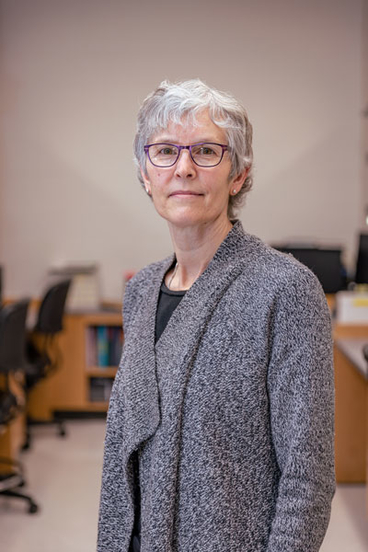
In 1997, the University of Minnesota launched the President’s Award for Outstanding Service as a way to recognize some of its faculty and staff who make exceptional contributions to the institution. One of this year’s recipients, LeeAnn Higgins, has spent more than 23 years doing exactly that.
Higgins is a research assistant professor in Biochemistry, Molecular Biology and Biophysics and is a critical member of the Center for Metabolomics and Proteomics, helping the facility grow in her tenure. She’s also co-authored 76 original research papers and advanced research projects that have brought in millions of dollars of revenue for the U of M while mentoring early-career scientists. We recently caught up with Higgins to get her thoughts on the award and her experiences at the University.
What did it mean to you to receive the President's Award for Outstanding Service?
To me, receiving the award has meaning for me on multiple levels. First, it was very a moving experience simply to be nominated, with the realization that others recognize that I have put my heart and soul into my career at the U of M for the past 23 years, and that I am fully dedicated to my job. Second, we’ve always had a very close-knit group of people working together in our lab and as such, receipt of this award is a reflection of our true team spirit. As we in the lab are dependent on each other on a daily basis, I would not have any opportunity to be recognized for my contributions at the workplace if I could not depend on my coworkers. Lastly, and most importantly, my dedication to hard work and responsibility was instilled in me by my father, to whom I owe a great deal of thanks for my work ethic.
What are you working on currently and what interested you in this work?
In our lab we use mass spectrometry technology for the investigation of diseases in humans, animals and plants and test numerous types of biological material for unknown chemicals. We collaborate on projects with faculty and medical personnel from numerous departments campus wide who bring biological samples relevant to the disease state or biochemical pathway under study in their lab. The mass spectrometry data we provide on proteins and small molecules assists our customers in their research pursuits and helps them to find answers to their research and clinical questions. My interest in mass spectrometry originated on my second day of graduate school when my advisor introduced me to this technology, and I have been ‘hooked’ ever since. The most fascinating technical aspect of this job is being able to link the mass spectrometry data to something biologically meaningful.
What's something about your time at the University that's stood out the most to you?
What stands out most to me about my job overall is the trust instilled in me by our research customers to deliver the highest quality results possible for their sometimes-challenging biological or medical samples, on which we gather mass spectrometry data. And this would not be possible without the effort and dedication shown by every person in our core facility, given the interdependence of projects on which we work in this lab.
Anything else about receiving the award that you'd like to add?
My job brings a level of enthusiasm and interest that could not be matched elsewhere, I think. I meet with people as they plan their projects and review results, I work on state-of-the art instrumentation and I work on data analysis, and this multifaceted aspect of my career brings fulfillment to my career in ways I could not have foreseen. I am honored to receive an award for landing the most enjoyable job I could ever imagine, and a heartfelt thank you goes to the wonderful people at UM that helped make this happen over the years.